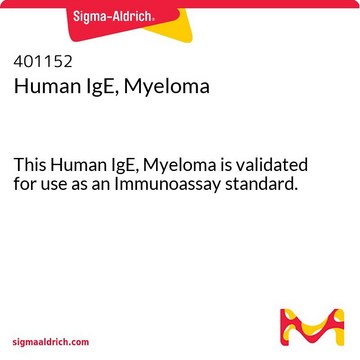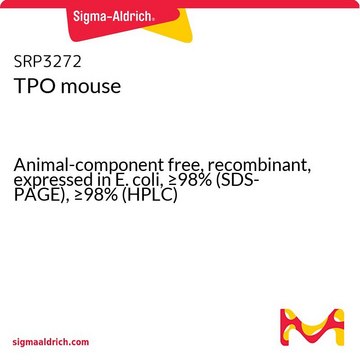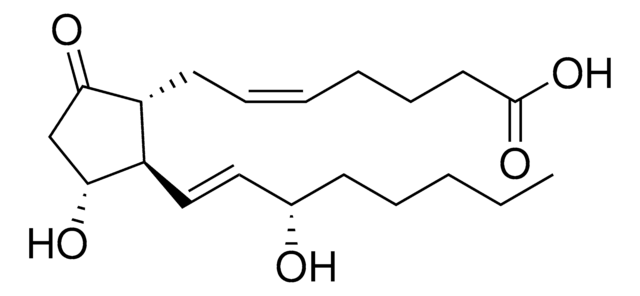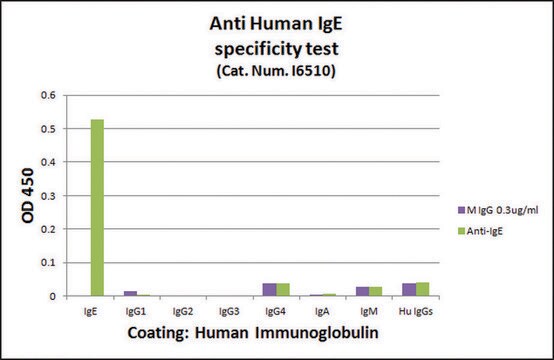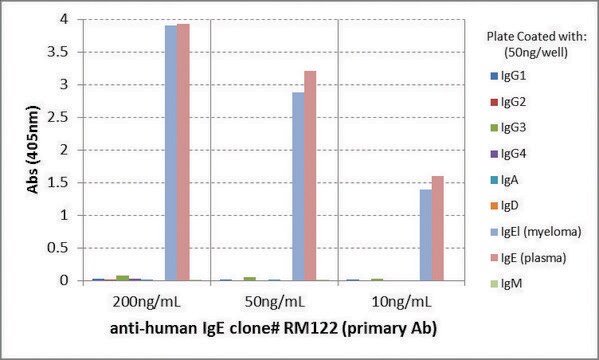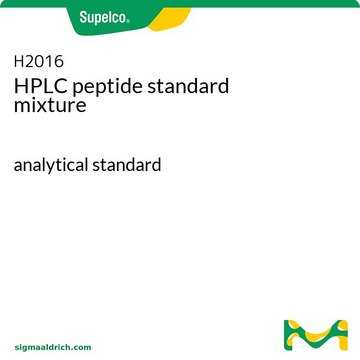SRP4193
IL-33 human
recombinant, expressed in E. coli, ≥98% (SDS-PAGE), ≥98% (HPLC)
Synonyme(s) :
C9orf26, DKFZp586H0523, DVS27, NF-HEV, NFEHEV, RP11-575C20
About This Item
Produits recommandés
Source biologique
human
Produit recombinant
expressed in E. coli
Essai
≥98% (HPLC)
≥98% (SDS-PAGE)
Forme
lyophilized
Poids mol.
~18.1 kDa
Conditionnement
pkg of 10 μg
Impuretés
endotoxin, tested
Numéro d'accès NCBI
Conditions d'expédition
wet ice
Température de stockage
−20°C
Informations sur le gène
human ... IL33(90865)
Description générale
Recombinant human IL-33 produced from Escherichia coli is a non-disulfide-linked homodimeric, non-glycosylated polypeptide chain consisting of 160 amino acids and having a total molecular mass of 18.1kDa.
Actions biochimiques/physiologiques
Forme physique
Reconstitution
Code de la classe de stockage
11 - Combustible Solids
Classe de danger pour l'eau (WGK)
WGK 3
Point d'éclair (°F)
Not applicable
Point d'éclair (°C)
Not applicable
Faites votre choix parmi les versions les plus récentes :
Certificats d'analyse (COA)
Vous ne trouvez pas la bonne version ?
Si vous avez besoin d'une version particulière, vous pouvez rechercher un certificat spécifique par le numéro de lot.
Déjà en possession de ce produit ?
Retrouvez la documentation relative aux produits que vous avez récemment achetés dans la Bibliothèque de documents.
Notre équipe de scientifiques dispose d'une expérience dans tous les secteurs de la recherche, notamment en sciences de la vie, science des matériaux, synthèse chimique, chromatographie, analyse et dans de nombreux autres domaines..
Contacter notre Service technique